- Global Resources
Shortcuts
Our Network
- Carnegie Moscow Center
- Carnegie–Tsinghua Center for Global Policy
- Malcolm H. Kerr Carnegie Middle East Center

Russian-Indian relations are traditionally good. The chemistry between the leaders is excellent, and members of the public are well disposed toward each other. Economic ties have long been stalling, however, and mutual suspicions have recently been creeping in over India’s relations with America, and Russia’s with China. To make the good relationship truly great, Moscow must rethink, adjust, and upgrade its approach to India. Vladimir Putin’s forthcoming visit to New Delhi could be a starting point.

What are the driving forces and goals behind China’s nuclear buildup? Should the ongoing U.S.-Russian arms control talks take into account Chinese progress? And does China’s refusal to take part in those talks render them meaningless?
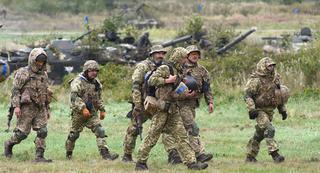
Russia’s military preparations and other actions signal that Moscow has recognized the danger of coexisting with a fortified area on its border, but doesn’t yet know what to do about it.

The European Union and its member states, as well as the European financial institutions have stood with the women and girls of the world throughout the pandemic.

By acting as the driving force behind anti-Chinese initiatives, Lithuania hopes to focus U.S. attention on the region and procure guarantees that Washington will not scale back its presence in Eastern Europe and the Baltic states.

Russia faces a litany of long-term economic challenges that will hobble its growth potential but likely won’t be severe enough to force far-reaching political change.

Not long ago, a popular Russian joke went: “Those who do not want to listen to Foreign Minister Sergey Lavrov will have to deal with Defense Minister Sergei Shoigu.” Now it is official.

Is the German regulator’s suspension of the certification process for Nord Stream 2 technical, or political? Why isn’t Gazprom cashing in while prices are so high, by sending additional gas to Europe? How does the Russian gas giant plan to deal with the global green energy transition?
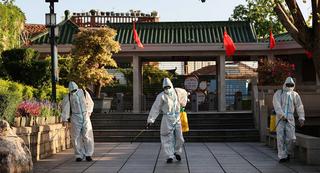
China’s new isolation has created plenty of difficulties in Sino-Russian ties, but its influence on strategic relations should not be exaggerated: the problems that have arisen can hardly be described as a serious crisis.
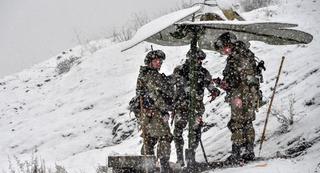
To mark the first anniversary of the Second Karabakh War, a group of experts from the Centre for Analysis of Strategies and Technologies published the book Storm Over the Caucasus. Dmitri Trenin, director of the Carnegie Moscow Center, wrote the book’s afterword.

Russia, it appears, wants to advance its own ecological agenda, but is not prepared to accept anyone else’s objectives.

Russia is certainly now taking climate-related issues seriously, but even though a latecomer in embracing the climate change agenda, it will not simply accept the West’s or the EU’s lead. Rather, it will act in accordance with its national interests.
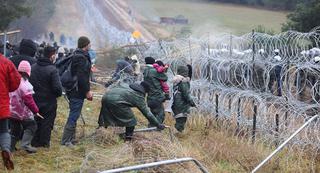
There are no signs that anyone in the EU is ready to bow to Lukashenko’s pressure. There’s no reason to do so. In the worst-case scenario, the EU will end up with a few thousand extra refugees: a drop in the ocean.
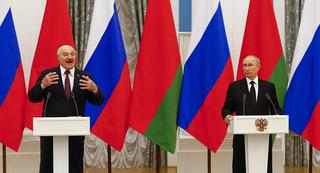
In the current situation, the main objective for the Kremlin is to maintain a controlled, pro-Russian transition of power in neighboring Belarus. If that means sacrificing closer integration, so be it.

Russia managed to formulate three climate principles ahead of COP26 that its delegation is promoting in Glasgow and, most likely, will continue to long after the summit ends.

The Moldovan crisis has demonstrated that Gazprom’s price will not be higher than the price set by the European hubs, which makes Gazprom a supplier like any other, and may be lower, which could make Gazprom a preferred supplier in countries with weaker economies.
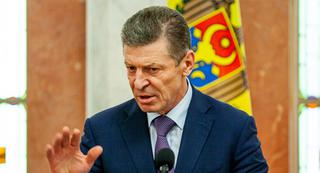
The gas crisis could be a moment of truth for Moldova, which has an opportunity to take energy security more seriously, root out sectoral corruption, implement energy efficiency projects, build capacity to operate on the European gas market, and enhance cooperation with Ukraine. Achieving all this would not exclude Russia, but it would make energy a market issue, rather than a geopolitical one.

The pandemic has failed to bring geopolitical rivals together, but has it created new divisions, or merely amplified existing disagreements? And have any lessons been learned for dealing with other global challenges, like climate change?

However President Shavkat Mirziyoyev’s second term develops, there is no point in expecting Uzbekistan to transform into a liberal democracy.

Tajikistan has no intention of getting into a direct confrontation with the Taliban. Rather, by taking a few more risks than its neighbors, the Tajik leadership is counting on boosting its popularity, both at home and abroad.